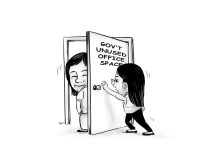
BY HERMAN M. LAGON
ECONOMIC inequality and social mobility are broader socioeconomic issues reflected in the debate about political dynasties. Ordinary Filipinos have difficulty climbing the socioeconomic ladder due to merit and hard work alone since these families control substantial political and economic resources, perpetuating current social structures.
We must recognize the very few dynasties that have done their best to improve the lives of their subjects and, in many cases, brought about revolutionary shifts in their communities. Many members of these families believe that the stability and consistency brought about by their long political careers are essential for the success of development initiatives spanning many years.
But there are many much more instances where dynasties have failed to deliver, becoming emblematic of the fundamental problems that afflict politics in every case. Therefore, it is necessary to cultivate a political climate that allows all citizens to serve in the public sector, choosing candidates based on their vision and abilities rather than their family tree.
For this problem, the best action would be to establish regulations that promote more openness and competition in politics so that no one family can gain too much power. With this method — including the hope for a wiser, principled, discerning, and militant electorate —everyone would be on an equal footing, and politics would become more vibrant and representative.
Backed with the lessons of the past, we must never stop asking what part political dynasties play in our culture. We must work together to demand changes that are true to democracy and partial to human rights. We must ensure that government is a duty that belongs to the people and not a privilege enjoyed by a few.
Ultimately, political dynasties do not automatically harm a nation’s democracy, but, as much evidence suggests, they threaten and damage it without adequate checks and balances. Moving on, we must find this middle ground, ensuring that public servants constantly consider the country’s most significant interests and democratic principles. If we are serious about building an equitable, inclusive, and just society, we must take the difficult but necessary step of reform, if not total transformation.
***
Doc H fondly describes himself as a ‘student of and for life’ who, like many others, aspires to a life-giving and why-driven world that is grounded in social justice and the pursuit of happiness. His views herewith do not necessarily reflect those of the institutions he is employed or connected with.
reflect those of the institutions he is employed or connected with./PN







